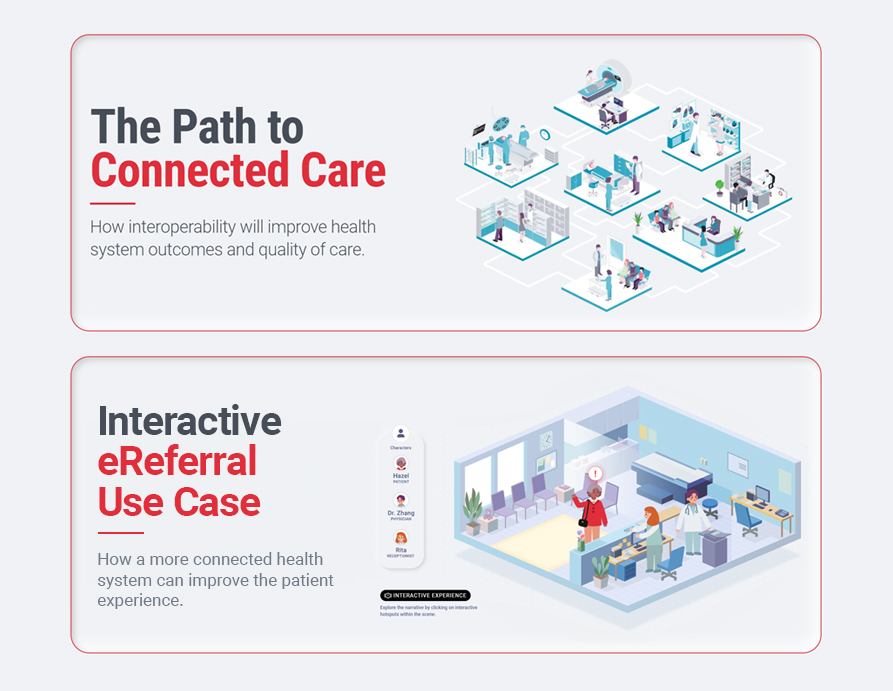Interoperability
Interoperability Overview
In support of the provinces and territories, Infoway is facilitating a national collaborative effort to advance interoperability, enabling information to flow seamlessly between different solutions and devices. When different parts of the health system are interoperable with each other, they can “speak the same language.” Interoperability improves continuity of care, collaboration between health providers and patient access to their health information. By breaking down data silos, it also reduces inefficiencies and redundancies within the health system.
Connection, collaboration and communication have never been more important for the health system. Increased use of virtual care has highlighted the need for safe and efficient electronic sharing of information across the circle of care. Continuing to improve Canadian health care will necessitate work in interoperability — connected systems are healthier systems.
Implementing Interoperability
Designed to deliver on Health Canada’s shared health priority of modernizing the healthcare system with standardized information and digital tools to ensure providers and patients have access to electronic health information, the Roadmap emphasizes the importance of moving toward a more unified approach across jurisdictions while outlining a clear, collaborative pathway for achieving interoperability goals.
Interacting with Interoperability
To further illustrate the concept of interoperability and showcase its value for Canadians, we have created two interactive resources, an eReferral use case and an overview of the path to connected care. The use case demonstrates how a more connected health system can improve the patient experience and the path to connected care illustrates how interoperability will improve health system outcomes and quality of care.

Patient Summaries
While there are many interoperability-related challenges, the sharing of patient summaries across different solutions has been identified as a priority based on extensive consultations.
Patient summaries are portions of health records comprised of a standardized collection of information. They enable a concise package of patient information to be accessed and updated by patients and clinicians, making it easier to share necessary information between care providers and settings (e.g., acute, primary and specialty care).
Infoway is advancing the pan-Canadian Patient Summary Specification (PS-CA), a guideline that defines the terminology that information systems across provinces, territories, languages, and specialties use to communicate with one another. The PS-CA is just one part of a national collaborative effort by Infoway, provinces & territories, health technology vendors, and the Canadian Institute for Health Information (CIHI).
eReferrals & eConsults
eReferrals simplify the referral process by allowing your primary care providers to send requests quickly and securely to specialists and other organizations electronically.
eConsults are virtual meetings through secure messaging or video conferencing platforms that allow health care providers to seek advice from specialists on behalf of patients without the need for a face-to-face appointment.
How to Get Involved
Communities provide an opportunity for people to collaborate and communicate on interoperability topics that are of interest to them and their peers on an ongoing basis. It’s a space where you can share news, attend education sessions and connect with experts. Examples include:
Working Groups are made up of committed implementers and engaged stakeholders with broad representation. The output of these groups will directly impact on-the-ground success of interoperability projects. Examples include:
